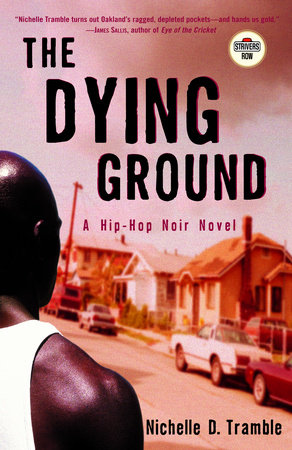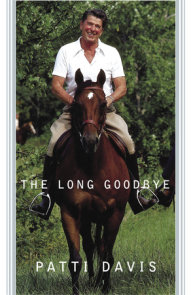READERS GUIDE
The questions and discussion topics that follow are intended to enhance your group’s reading of Nichelle D. Tramble’s The Dying Ground. We hope they will provide fresh insights and ways of looking at this exciting new novel.Questions and Topics for Discussion
1. The Oakland of Daddy Al’s youth is much different than that of his old age; the opportunity that drew him to the West has been replaced with a drug-fueled violence. Yet in some sense, the freedom and hope of old Oakland still exists in the illicit world of drugs. How does the younger generation appropriate and transform this spirit? What is the response of Daddy Al’s generation to this change?
2. Like many places where the law ceases to have meaning, Oakland, and its young in particular, relies on an alternate, unspoken idea of morality and honor. Describe this code of ethics. What are the rules? Do they differ between the drug world and the larger community? What are the contradictions between these rules and the law?
3. When Daddy Al tells Maceo about the tragic life and death of his first wife, Elizabeth, what is he saying about his idea of justice? About its redemptive power? Is this a warning to Maceo?
4. Maceo’s large, close-knit family nurtured him from birth and provided a substitute family for many of his friends. Despite the strength of this family relationship, the ghost of Maceo’s mother and father seem to exert an equally strong influence on him. What is this legacy? How does it affect him? How are Holly and Felicia affected by the mistakes of their parents?
5. Maceo’s vivid dreams haunt him throughout the book; they function as premonitions as well as expressions of his true fears. It seems as if Maceo is wrestling his demons in these dreams, and it is here that we encounter Maceo’s father and Billy Crane. What do these dreams tell us about Maceo? About his fears? His guilt?
6. As outsiders and insiders to Oakland, Alixe and Felicia are near opposites, yet they represent Maceo’s twin desires. "Alixe was what I wanted waiting for me on the other side, but I needed Felicia." What is Felicia’s role in Maceo’s life? What is Alixe’s? How does Alixe view Maceo’s world?
7. Despite the violence surrounding them, the residents of Oakland maintain a remarkable sense of community, as witnessed in Cutty’s barbershop and during Billy Crane’s funeral. Are these scenes realistic? Discuss how humor is used and expressed in this community.
8. Maceo and Holly view their participation in "the game" less as a choice than as a result of their personal history. Maceo claims he was "born in death," and both men carry the sins of their parents close to their hearts. It is as if their parents and surroundings have created a future in which they have little choice. Discuss this notion of fate. Is it valid? How does it shape their decisions? Does it cause them to disregard the consequences of their actions?
9. Scottie, Maceo, and Daddy Al represent three generations of Oakland males; both of the men play the role of father figure — Daddy Al to Maceo and Maceo to Scottie. How do these relationships work? Is there any disappointment within them? What is each man teaching the younger?
10. For most of the book we see Felicia only through the eyes of others; how does Maceo’s characterization of her differ from reality? After she returns to Oakland to avenge Billy’s death, Felicia’s brother accuses her of following the horrifying example of their father. Do you think this is true? How does she arrive at her startling, heartrending solution to Billy’s death? Are her actions justified?
11. The Dying Ground charts Maceo’s journey from the fringes of violence to its very center. He struggles to make this transition on his own terms, trying to stay true to the disparate beliefs of his family and friends. Is he successful? Does his love for and allegiance to Felicia redeem him? What does the future hold for him?
12. "From memory my gut knew that it would all disappear one way or another, and it had, one by one…. Some of the loss was my own doing, I couldn’t argue that, but it all stemmed from the same place … drugs." Tramble writes with a sense of ambivalence toward the Oakland drug world; she acknowledges its devastating effects but respects its power. The character of Alixe best reflects this view. What is her assessment of Oakland? Are there any heroes in this story? Do we, as readers, come to understand them?
13. "When you will survive if you fight quickly and perish if you do not, this is called the dying ground’ (Sun Tzu). Explain Tramble’s use of this quote in her title. What does it say about Oakland and its future?
14. "When you will survive if you fight quickly and perish if you do not, this is called the dying ground’ (Sun Tzu). Explain Tramble’s use of this quote in her title. What does it say about Oakland and its future?




















